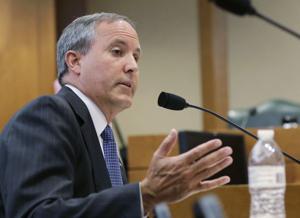AG Paxton: Supreme Court rulings impact Texans, some for better, some for worse

(The Center Square) – The U.S. Supreme Court has handed down several rulings that impact Texans, Texas Attorney General Ken Paxton said Wednesday. They include Fulton v. City of Philadelphia, California v. Texas, Sanchez v. Mayorkas, and NCAA v. Alston.
In Fulton v. City of Philadelphia, the Supreme Court ruled that Philadelphia violated the Free Exercise Clause when it singled out Catholic Social Services and excluded it from participating in a foster care program because its religious beliefs prevented it from contracting with same-sex couples as foster parents. Philadelphia’s citywide ordinance prohibiting discrimination based on sexual orientation did not apply to this case, the justices argued, because foster care agencies do not act as public accommodations when certifying foster parents.
“Today’s unanimous Supreme Court decision affirms what we’ve already known; that foster care and adoption programs should be focused on the interest of children, and those interests are not served when the government excludes faith-based organizations from participating based solely on their religious beliefs,” Paxton said in a statement. “Cooperation between state and faith-based groups is fundamental to child welfare, just as is religious liberty to our Constitution.”
In California v. Texas, the court dismissed the state of Texas’ constitutional challenge to the Affordable Care Act, arguing that plaintiffs had no legal standing. The majority held that the state did not offer sufficient evidence that the act’s individual mandate requiring everyone to carry health insurance would harm them by leading more individuals to enroll in Medicaid.
In response to the ruling, Robert Henneke, Texas Public Policy Foundation’s general counsel and lead counsel for individual plaintiffs in the case, said, “For a third time, the Court bailed out Congress to save the Affordable Care Act from legal consequences, each time creating more questions than answers. As a result of this decision, we now have a law on the books – the individual mandate – that the Supreme Court already declared unconstitutional, but now says can simply be ignored by every American.”
David Balat, director of TPPF’s Right on Healthcare, said, “The good news is that Texas is beginning to forge its own path and develop new models that provide better help to the uninsured, require pricing information upfront, and put patients in charge. Texas is not waiting around for the Supreme Court to finally recognize the legal problems with the ACA. The failed policy has been evident for more than a decade and Texas is responding with solutions that result in better health outcomes for patients.”
In Sanchez v. Mayorkas, the court unanimously held that people who enter the U.S. illegally and remain under temporary protected status are not entitled to receive green cards. Matthew Tragesser, a spokesperson for the Federation for American Immigration, told The Center Square that the decision “represents a victory for the American people and for the integrity of the nation’s immigration system.”
In NCAA v. Alston, the court unanimously ruled that antitrust law prevents the NCAA from restricting payments to athletes for education-related benefits.
Texas athletes participating in Division I men’s and women’s basketball and the Football Bowl Subdivision will now be allowed to receive benefits that include cash or cash-equivalent awards based on academics or graduation. Texas colleges and universities may also offer scholarships for undergraduate or graduate degrees and paid internships.
Disclaimer: This content is distributed by The Center Square


